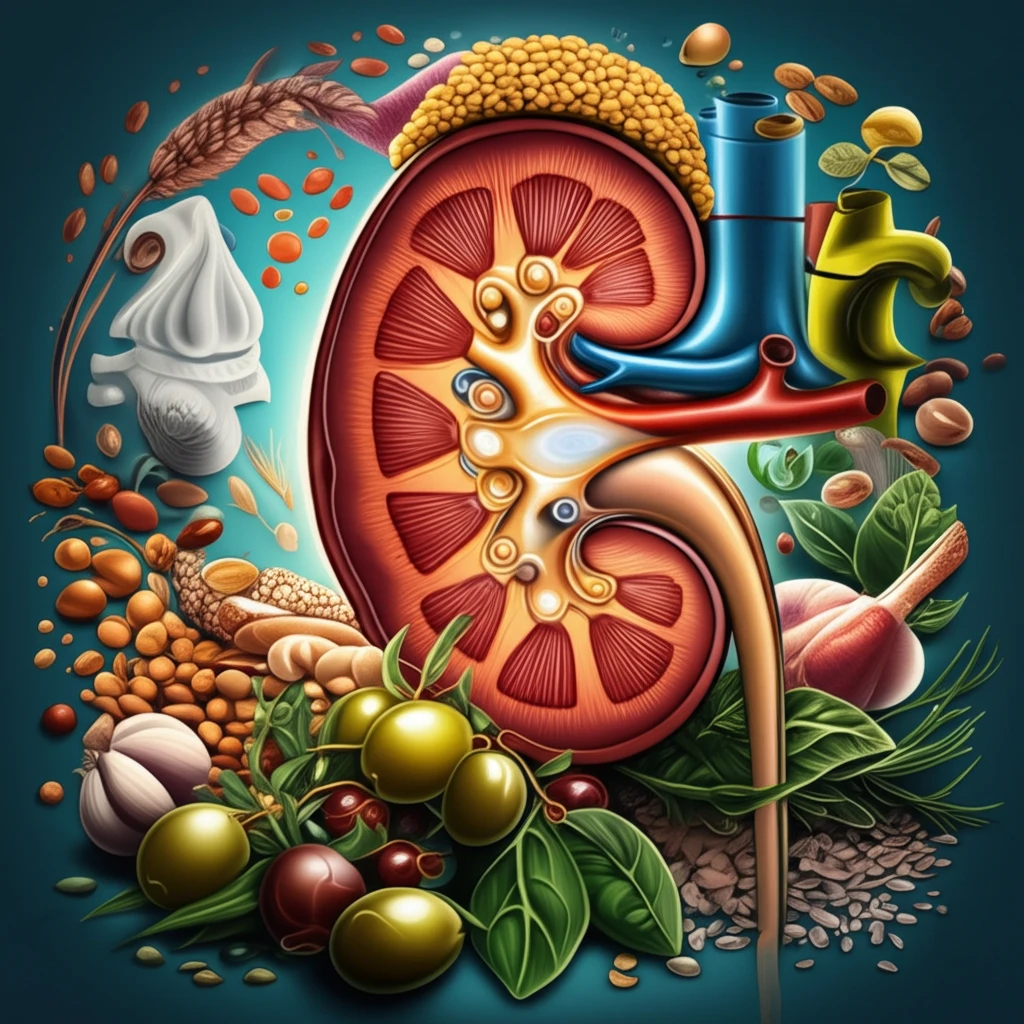
The Mediterranean Diet: Your Delicious Defense Against Chronic Kidney Disease
"Discover how this vibrant dietary pattern can help manage CKD, protect your kidneys, and enhance your overall well-being."
For years, managing chronic kidney disease (CKD) has primarily focused on strict limitations: limiting energy and protein intake, and meticulously controlling individual micronutrients. While these restrictions are important, they often overshadow the power of a well-rounded, high-quality dietary pattern. Now, clinical guidelines are shifting to incorporate more plant-based diets, lower in processed meats, sodium, and refined sugars, and richer in whole grains and fiber.
Enter the Mediterranean Diet (MD), a vibrant and flavorful dietary pattern lauded for its heart-healthy benefits. Observational and interventional studies have consistently linked the MD to a reduced risk of cardiovascular disease. But its benefits don't stop there. Research suggests the MD can also positively impact other chronic conditions like diabetes, obesity, and even cognitive health.
But can the MD truly benefit individuals with CKD? This article delves into the classical components of the MD, evaluating their suitability for managing CKD and addressing common concerns like potential hyperkalemia. We'll explore how the MD's emphasis on whole foods, healthy fats, and plant-based protein can support kidney health and overall well-being.
Unlocking the Power of the Mediterranean Diet for CKD

The Mediterranean Diet isn't just about individual nutrients; it's about a holistic dietary pattern. It emphasizes a high consumption of fruits, vegetables, whole grains, legumes, nuts, and seeds. Extra virgin olive oil serves as the primary source of monounsaturated fats, while dairy, fish, and poultry are enjoyed in moderation. Red meat and sweets are reserved for special occasions, and wine is consumed in moderation with meals. The MD provides an overall eating approach which promotes healthy living.
- High in Antioxidants: Abundant fruits, vegetables, and olive oil provide a wealth of antioxidants to combat inflammation and oxidative stress, common concerns in CKD.
- Fiber-Rich: Whole grains and legumes promote gut health and can help manage blood sugar levels.
- Healthy Fats: Olive oil and nuts offer monounsaturated fats, known for their cardioprotective benefits.
- Plant-Based Protein: Emphasizes plant-based sources like legumes and nuts, reducing the burden on the kidneys compared to high-meat diets.
Embracing the Mediterranean Diet for Kidney Health: A Promising Path Forward
The Mediterranean Diet presents a compelling dietary approach for individuals with CKD. Its emphasis on plant-based foods, healthy fats, and whole grains aligns with current recommendations for chronic disease prevention and management. While concerns about potassium intake are valid, careful food selection, potassium monitoring, and potentially the use of potassium binders can help mitigate these risks. By embracing the MD, individuals with CKD may experience a reduced risk of cardiovascular complications, improved metabolic control, and enhanced overall well-being.
